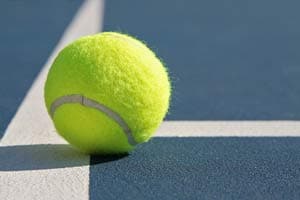Tennis announces new measures against doping
The announcement comes after a meeting of the Tennis Anti-Doping Programme working group (TADP), which includes representatives from the ITF, ATP, WTA and grand slam tournaments.
- Written by Agence-France Presse
- Updated: March 07, 2013 06:44 pm IST
 Tennis is to introduce biological passports for players this year to help in the fight against doping, the International Tennis Federation (ITF) announced on Thursday.
Tennis is to introduce biological passports for players this year to help in the fight against doping, the International Tennis Federation (ITF) announced on Thursday.
Several top players on the men's tour, including Swiss great Roger Federer and US Open champion Andy Murray, have gone public with their belief that more time and money needs to be devoted to keeping tennis free from drug cheats.
The announcement comes after a meeting of the Tennis Anti-Doping Programme working group (TADP) this week, which includes representatives from the ITF, ATP, WTA and grand slam tournaments.
The ITF said there was unanimous support for the introduction of the passport, which is used to detect variances in biological make-up that might indicate doping and has been introduced in cycling.
"The ATP has always rigorously supported the Tennis Anti-Doping Programme (TADP) and believes that the move toward the Athlete Biological Passport is the appropriate step for tennis at this time," said ATP executive chairman and president Brad Drewett.
"The players have been clear that they support increased investment in anti-doping and we feel that this is the most effective way to show the world that tennis is a clean sport."
The introduction of the Athlete Biological Passport will require the TADP to increase the number of blood tests every year.
In addition, the working group also recommended an overall increase in the amount of testing, especially outside competitions, with additional funding provided by all the governing bodies in tennis and administered by the ITF.
"The implementation of the Athlete Biological Passport is an important step in the evolution of the Tennis Anti-Doping Programme as it provides us with a great tool in the fight against doping in our sport," ITF President Francesco Ricci Bitti said.
"We also hope to have increased support from the national anti-doping agencies around the world who need to do their part if we are to win this battle and make our programme more effective."
